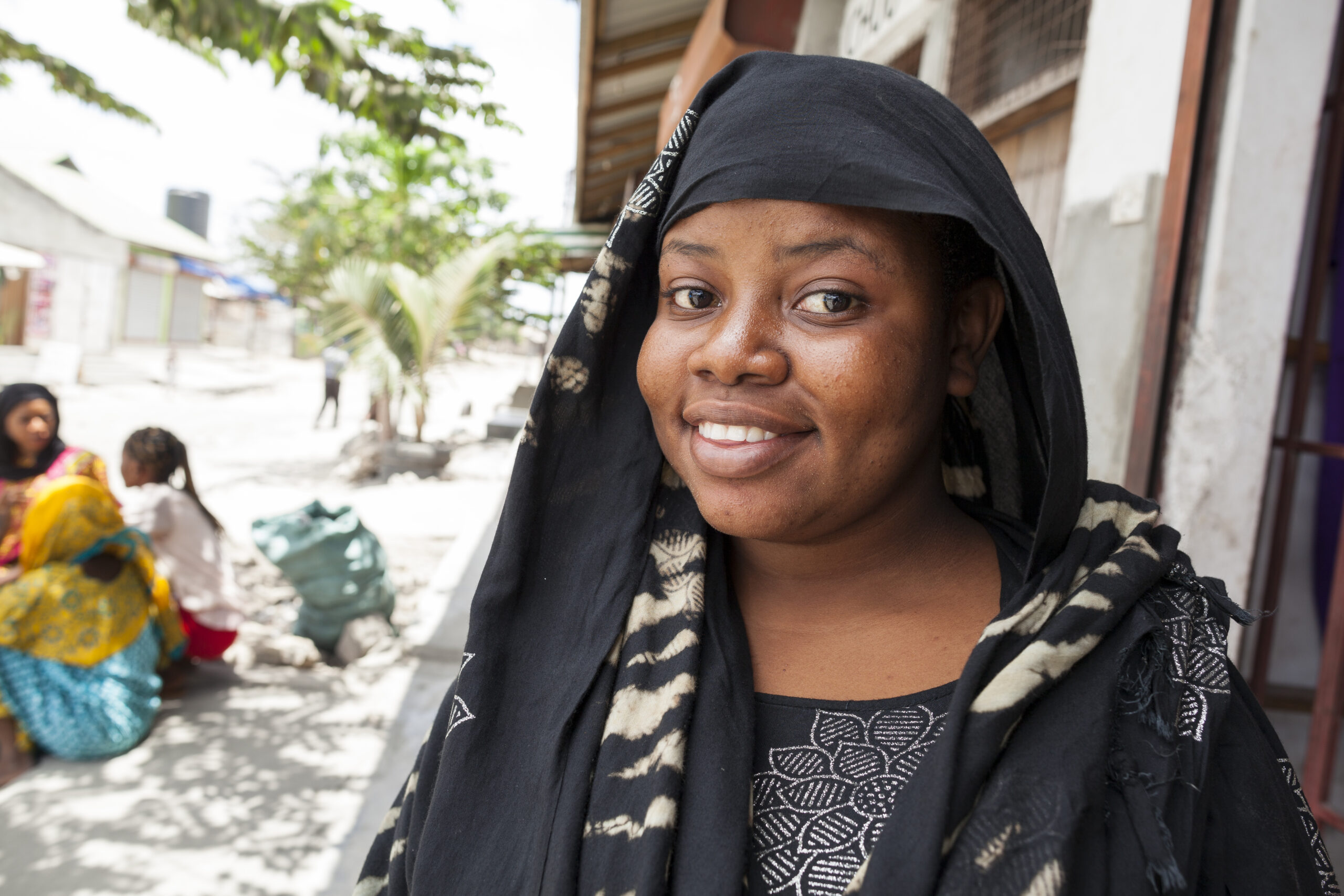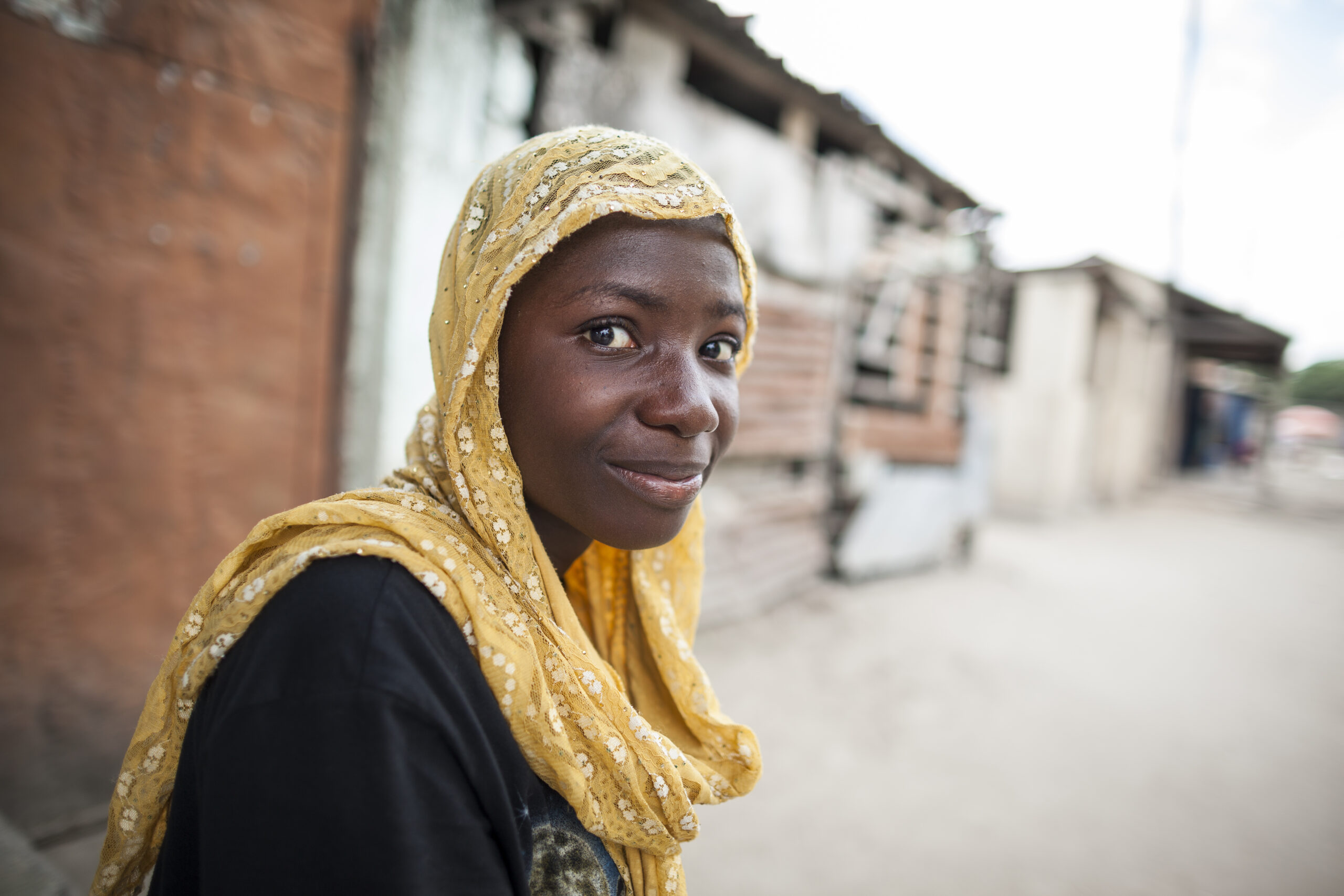Girls’ journey within Kuwa Mjanja coalesces around two distinct models – an in-clinic model and an outreach-based out-of-clinic model in the community. Together, these two service delivery channels work to ensure that girls have a variety of options to engage with the intervention at locations, venues, and times most convenience for them. Regardless of the channel, both models follow the same overarching user journey for girls. Kuwa Mjanja is designed to offer an experience that cultivates a girl’s curiosity, taps into her life goals and aspirations, creates a safe and fun environment to ask questions, helps girls feel respected and safe when accessing services, and positions contraception as a relevant tool to help her achieve her goals.
During in-clinic events, Kuwa Mjanja outreach teams convene on the grounds of designated public health facilities and work in partnership with providers and local government to engage in interactive dialogue sessions, offer girls Kuwa Mjanja’s aspirational program messaging, and youth-friendly service delivery. In-clinic events support girls to build confidence and bodily autonomy, making linkages to contraception as a tool to help them achieve their future goals.
During community-based out-of-clinic events, Kuwa Mjanja outreach teams work with government youth development officers and with local health officials to implement Kuwa Mjanja’s dynamic package of services through mobile outreach, in a tent or a community facility, apart from the health center. After an initial aspirational group talk, trainers orient girls to a vocational skill (such as making soap or reusable menstrual pads). During this session, trainers reinforce girls’ pride in developing and pursuing life goals. Kuwa Mjanja Queens, girls from within the community with an active social network who are identified by A360 in collaboration with local government actors, play a key role in mobilization in their respective wards, and serve as co-implementers during the out-of-clinic events. Though events were originally planned only on weekdays during regular service delivery hours, the A360 team recognized the importance of weekend events when client volume in public sector facilities is typically lower and providers have more time to offer tailored service delivery in line with the Kuwa Mjanja brand. Weekends likewise present fewer scheduling conflicts for girls related to school or family responsibilities. Therefore, the A360 team decided to hold out-of-clinic events on Saturdays, in addition to regularly scheduled weekday events.



